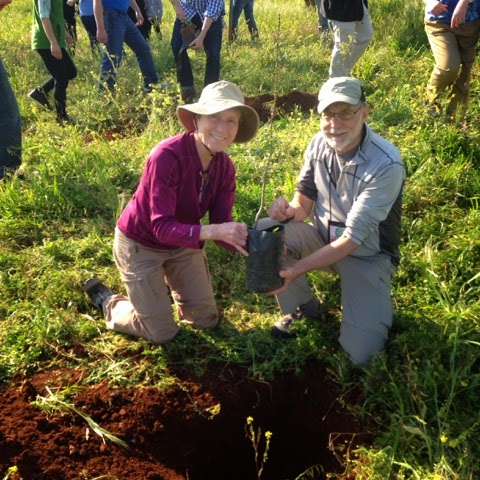Up early again. Our bus had to park a mile away from our hotel because the main roads in East Jerusalem were closed for the marathon. The marathon route road closing is imposed on Palestine East Jerusalem by the Israeli Government. It is a major imposition on Muslims to restrict their mobility on a Friday, the Muslim sabbath.
Israeli soldiers along the marathon route
On the way out of Jerusalem, we passed the American Colony hotel, which is where all the spy agencies, including the CIA hang out, according to Jirias.
Our travel to Bethlehem included stops for meetings with local NGOs and activities.
The District of Bethlehem includes the towns of Bethlehem, Beit Jala, and Beit Sahour. The wall surrounding the district prevents farmers from reaching 15,000 dunums of their agricultural land, primarily olive trees.
Suhail Khalieith, Applied Research Institute of Jerusalem, talked about the separation wall and how it was used not for security but to expand the colonization of the West Bank by Israel.
There are 196 settlements in the occupied territories plus outposts. Construction 2.5 pct of land but actually 9% of land including outposts strategically placed on hilltops near settlements 1-2 miles away. Outposts are for future expansion. Outposts are secured with at least water, electricity and sewage. Sewage is often allowed to pollute Palestinian land as just one more expression of harassment. Initially, the settlements looked random but they are actually part of a strategic plan.
The Wall is 4 times as long as Berlin Wall. Designed to annex 13 pct of Palestinian land including many natural resources.
Graffiti is a method of protest and creates an enclave of beauty in the midst of chaos and occupation. Quotes from the wall ...
Being a father helps you remember that you have a ❤️.
Challenging Empire: God, faithfulness & resistance
Suhail explained how the occupied territories are administered based on the Oslo Agreement.
Yellow license plates can go anywhere ... Only for Israeli citizens.
White/green license plates are subject to restrupicted travel, and are issued to Palestinians who are not Israeli citizens. Cars with these license plates may not enter Israel.
Area A is controlled only by Palestinians is about 18% of the land but where most of the people live.
Area B where Palestinians control health, education and construction but not security is about 17% of the land.
Area C is under the full and absolute control of the Israeli army and is about 62% of the land
A nature reserve under of the Israeli Environmental Protection Agency is about 3% of the land.
Mohammed T. Obidallah, Palestinian Manager for Eco Peace Middle East, Palestine talked about a success story of relocating the separation barrier away from 5000 year old terraces and irrigation channels in the town of Battir.
Mohammed arranged a wonderful lunch for us prepared by women from Battir.
Jane Sami Hilal also of the Applied Research Institute of Jerusalem talked about how Israel restricts access to water. It was heart breaking to hear how Israel used its power as the occupying authority to grab most of the available water for its own use. An Israeli settler typically uses 400 liters per day at a subsidized cost of .10 cents per liter while a typical Palestinian may use as little as 20 liters at a cost of .70 cents per liter. In Area C, Israel refuses to permit water projects that only benefit Palestinians and they destroy even modest Palestinian projects like cisterns.
We also experienced the satisfaction of planting trees donated by the Tree of Life to Sami Abed’s farm to replant Fruits trees that were poisoned by Jewish settlers near his farm. TOL donated 40 trees. This was a reunion for People in our group who were on the TOL trip last fall. They had helped with the olive harvest and fixed a portion of a fence that had been damaged by settlers.
After planting the yrees and a walk around the farm, we had tea and cookies on the roof of one of the farm houses. Sami and his family are not allowed to make any improvements to their houses because the Israelus will not issue permits.
One of the delightful young boys from Sami's farm.
At the end of the day, we visited the Sound of Palestine music program at the Aida Refugee camp and met young musicians and watched their performance. (http://www.soundsofpalestine.org)
Sounds of Palestine Sounds of Palestine is a community music project inspired and based on the concept of El Sistema in Venezuela. This concept uses music education as a medium to achieve long term social change for the children and families involved and has proven to be successful in more than 25 countries all over the world.
After the concert we settled in to the Paradise Hotel for our stay in Bethlehem.





















No comments:
Post a Comment